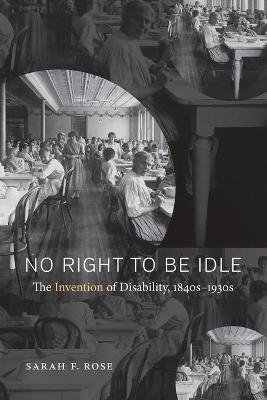During the late nineteenth and early twentieth centuries, Americans with all sorts of disabilities came to be labeled as “unproductive citizens.” Before that, disabled people had contributed as they were able in homes, on farms, and in the wage labor market, reflecting the fact that Americans had long viewed productivity as a spectrum that varied by age, gender, and ability. But as Sarah F. Rose explains in No Right to Be Idle, a perfect storm of public policies, shifting family structures, and economic changes effectively barred workers with disabilities from mainstream workplaces and simultaneously cast disabled people as morally questionable dependents in need of permanent rehabilitation to achieve ""self-care"" and ""self-support.""
By tracing the experiences of policymakers, employers, reformers, and disabled people caught up in this epochal transition, Rose masterfully integrates disability history and labor history. She shows how people with disabilities lost access to paid work and the status of “worker”--a shift that relegated them and their families to poverty and second-class economic and social citizenship. This has vast consequences for debates about disability, work, poverty, and welfare in the century to come.
- ISBN13 9781469624891
- Publish Date 30 January 2017
- Publish Status Active
- Out of Print 12 March 2021
- Publish Country US
- Imprint The University of North Carolina Press
- Format Paperback
- Pages 400
- Language English
